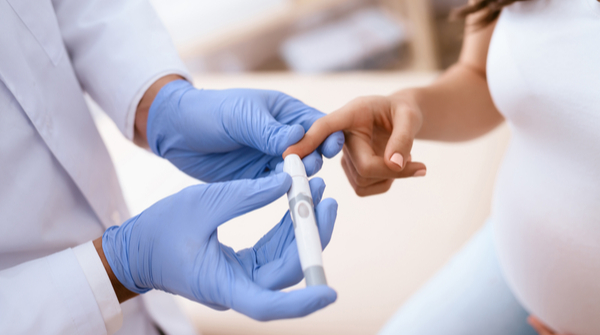Pregnancy brings the utmost joy to a woman’s life. However, at the same time, she experiences tons of mental and physical transformations. Women who are diagnosed with diabetes during their pregnancy go through constant ups and downs in their blood sugar levels. Read on to learn more about diabetes and pregnancy.
When does gestational diabetes take place? Cases of gestational diabetes are on the rise. It usually starts between week 24 and week 28 of pregnancy. This is when the body does not produce enough insulin to deal with the increased glucose that circulates in a woman’s blood to help her baby grow.
Diabetes and Pregnancy: Understanding Gestational Diabetes

Pregnant women who have never had diabetes but experience high blood sugar levels during pregnancy are said to have gestational diabetes. High blood sugar from the mother leads to high blood sugar in the baby. If left untreated, it can cause problems for the baby. However, proactive diabetes care and management are essential in order to ensure the harmful effects of gestational diabetes mellitus do not pass on to the baby.
Gestational diabetes starts when your body is unable to make and use all the insulin it needs during pregnancy. Moreover, without enough insulin, glucose cannot be changed to energy.
Before we understand gestational diabetes symptoms and how it affects your baby, let us look at the possible risk factors which lead to this health condition among pregnant women.
Risk Factors for Gestational Diabetes Mellitus
- Obesity can increase your risk of developing gestational diabetes.
- The family history of a parent or sibling who had this type of diabetes during pregnancy increases your chance of developing it.
- Age is also a significant factor in pregnancy. The older you are during your pregnancy, the higher is the risk of diabetes.
- Glucose intolerance – Being glucose intolerant or having gestational diabetes in the past makes you more likely to get it again in your next pregnancy.
- Gestational diabetes can cause the foetus to be larger than usual. As a result, the delivery of the baby may be more complicated. Moreover, the baby is also at risk for developing low blood glucose immediately after birth.
Complications of Gestational Diabetes for the Mother
- Due to the large infant size, women with gestational diabetes have a greater chance of needing a Caesarean birth (C-section).
- Gestational diabetes may increase the mother’s risk of developing high blood pressure and protein in the urine.
- Women with gestational diabetes are also at risk of having type 2 diabetes after pregnancy.
Tips for a Healthy Pregnancy with Diabetes
- Get sugar under control: When thinking of getting pregnant, you need to kick bad habits (like smoking), lose weight (if you’re overweight), and take prenatal vitamins. Moreover, you also need to keep your blood sugar under control. This is because if your blood sugar levels are too high or too low, you may have a tough time when trying to conceive. Women with type 2 diabetes are particularly at risk for polycystic ovary syndrome (PCOS), which can also make it difficult to get pregnant.
- Consider going off oral medications: Most doctors usually suggest that pregnant women with type 2 diabetes discontinue the oral medication. This is because there is not enough evidence that diabetes pills, such as metformin are safe to take during your pregnancy. While oral medications are convenient, insulin may be a better choice to help you keep a grip on your blood sugar before and during pregnancy. Hence, it is advisable to talk to your doctor about whether your current insulin regimen will meet your needs during pregnancy.
- Have a quick-carb stock ready: If you’re insulin-dependent, you need to be ready to cope with hypoglycemia, a condition that occurs when the blood sugar in your body is too low. This is caused by taking too much insulin and not eating enough to match the insulin levels in your body. You can keep glucose tablets handy after discussing them with your healthcare provider.
- Get active: If there are no complications in your pregnancy, you will be asked to get active by the end of your second trimester. Invest in some light exercise on a regular basis.
Read More: Top Ten Do’s and Don’ts of Gestational Diabetes
Regular Sugar Monitoring Is The Key
Keeping a close watch on your blood sugar levels is the key requirement for maintaining healthy readings. Use a compact glucometer like the BeatO smartphone glucometer to take regular readings even when you are on the go. The BeatO glucometer syncs your readings with the BeatO app and instantly connects you to a diabetes educator.
Once you are connected to your personalised diabetes educator, you can track your blood sugar readings under expert guidance and plan the diet and lifestyle required to naturally bring down glucose levels.





